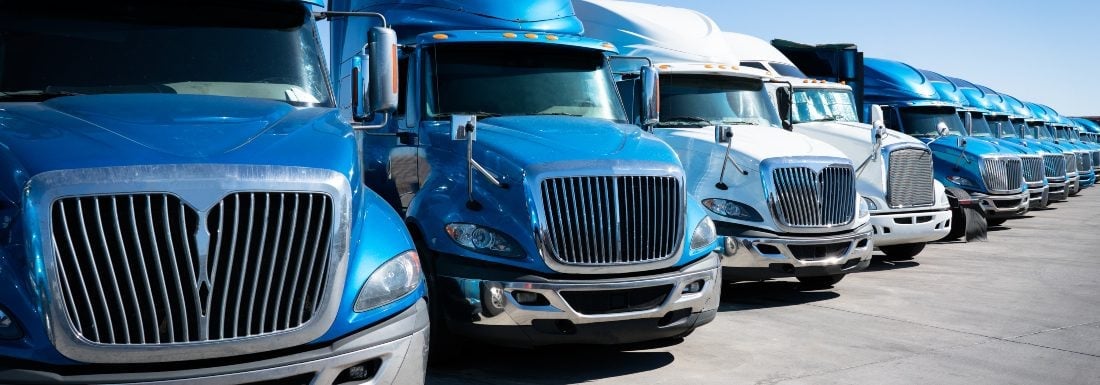The Basics of DOT Clearinghouse Recordkeeping & Data Management

As a motor carrier regulated by the Department of Transportation, you have a lot of things to keep track of and numerous records to compile and maintain.
And the Drug & Alcohol Clearinghouse that went live a little over a year-and-a-half ago adds even more to your roster. The Federal Motor Carrier Safety Administration (FMCSA) has stringent Clearinghouse recordkeeping and data management regulations that you must comply with. And if you don’t? You could face significant fines and violations.
Read on to find out what you need to know—and how a digital solution can help you maintain compliance.
Clearinghouse Basics—And What You Need to Be Doing
The FMCSA’s Drug and Alcohol Clearinghouse went into effect in January 2020 with the intent of further improving the safety of America’s roadways. The online database provides employers and government agencies real-time information about commercial driver’s license (CDL) and commercial learner’s permit (CLP) holders’ drug and alcohol program violations.
Per federal regulation:
- All businesses that employ CDL drivers, as well as CDL drivers themselves, must have accounts with the Clearinghouse.
- All employers must run pre-employment queries on prospective drivers and report all positive drug and alcohol testing results.
- Employers must also run annual queries on drivers throughout the duration of their employment.
DOT Compliant Recordkeeping
To remain compliant, carriers must retain the following (and in a secure location):
- Pre-employment queries for all new drivers hired since the DOT Clearinghouse went into effect.
- Annual driver queries for every driver throughout their employment.
- Signed consent forms.
The two types of queries run through the Clearinghouse are limited queries and full queries.
- Full queries are run as pre-employment checks, periodic checks, or when limited queries return records on a driver, and they disclose all information related to a driver’s drug and alcohol violations. Each and every time a full query is run, consent must be received electronically for the driver within the Clearinghouse.
- Limited queries are run as annual or periodic checks, and simply inform employers whether a driver has records in the Clearinghouse. Consent can be received from the driver via a blanket form that should be crafted to allow you to perform unlimited queries.
In both of the above cases, consent forms must be retained in a driver’s qualification file for the duration of their employment.
It’s essential to remember that, before any query—full or limited—can be run, consent must be received by the driver. This is because information in the Clearinghouse is subject to both the Privacy Act and the Fair Credit Reporting Act.
And should a driver refuse consent? They must be immediately removed from safety-sensitive service until they have satisfied return-to-duty requirements.
The Importance of Data Management
Most importantly: Know (and double-check) your drivers’ CDL numbers!
One of the most common reasons for query errors is inputting the incorrect CDL number—or having the wrong CDL number on file.
If CDL information is incorrect, the query will be unsuccessful, and your request will be denied. If you fall behind on your queries and aren’t able to run them in a timely manner, this could put you at risk of noncompliance (and high fines).
Penalties for Non-Compliance
Not following Clearinghouse recordkeeping regulations—or, as noted above, inputting incorrect information—can get you and your business in a lot of trouble. To start, the FMCSA has nearly doubled fines for non-compliance since the inception of the Clearinghouse—the average fine is now $5,833 per violation, compared with $2,500 in early 2021.
Considering those numbers, you simply can’t take the risk of noncompliance.
The key to preventing errors and noncompliance is to have a DOT compliance solution that stores your documents in a secure online portal.
From CDLs to medical cards, Foley reviews documents for accuracy and legibility before they are uploaded to a driver’s file. We also ensure that all information we have on file from the DOT and FMCSA matches the information on a driver’s current CDL. This way, you can ensure that all the information you have is as accurate, up-to-date, and easily accessible as possible—all of which can ultimately help you maintain compliance now and in the future.
Contact Foley today to learn about our digital, automated compliance solution.
Related Articles
Webinar Transcript: Recordkeeping Secrets for Your Drug & Alcohol Testing Program
The Sudden Closing of Falcon Transport
Manage the Shift in DOT Recordkeeping: Webinar Transcript
.png)




